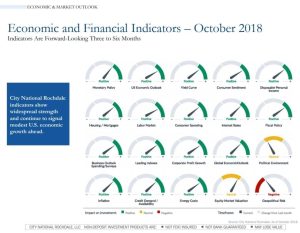
In the fast-paced world of technology, business owners need to constantly keep an eye on their bottom line. One vital aspect of managing finances is tax optimization. By effectively minimizing tax liabilities, businesses can maximize profits and gain a much-needed competitive edge. In this article, we will explore various tax optimization strategies specifically tailored for business owners in the tech niche.
1. Charitable Donations and Sponsorships
One effective way for tech businesses to optimize their taxes is through charitable donations and sponsorships. By sponsoring local events or making donations to non-profit organizations, businesses can not only contribute to society but also enjoy tax deductions. These deductions can significantly reduce taxable income and ultimately lower the amount of tax owed.
When considering charitable donations and sponsorships, it is important to align them with the business’s values and objectives. Investing in causes related to technology, education, or community development not only supports the local community but also portrays the business in a positive light.
2. R&D Tax Credits
Research and Development (R&D) is an integral part of the tech industry. To encourage innovation and growth, governments often provide tax incentives in the form of R&D tax credits. These credits can be a significant asset for tech businesses looking to optimize their taxes.
By properly documenting and substantiating eligible R&D expenses, businesses can claim tax credits that directly reduce their tax liability. It is crucial to work with tax professionals who have experience in maximizing R&D tax credits to ensure all eligible activities are identified and claimed.
3. Employee Stock Options
Tech companies often attract and retain top talent through stock option plans. Employee stock options (ESOs) allow employees to purchase company shares at a predetermined price, offering potential future gains. For businesses, ESOs can provide a valuable tax optimization strategy.
When structured properly, granting ESOs can result in tax advantages for both the employee and the employer. By issuing stock options, businesses can offset taxable income and potentially reduce their overall tax burden. Additionally, ESOs serve as a powerful incentive, aligning employees’ interests with the company’s growth and success.
4. Incorporation Strategies
Incorporating a tech business can yield significant tax advantages. By separating personal and business finances, business owners can leverage various tax optimization strategies. One popular option is incorporating as an S Corporation.
As an S Corporation, business owners can pass through their business’s income to their individual tax returns, avoiding double taxation. This strategy allows owners to take advantage of lower personal tax rates on business profits. However, it is essential to consult with tax professionals before making any decisions to understand the legal and financial implications.
5. Expense Tracking and Deductions
Proper expense tracking and claiming applicable deductions are crucial for optimizing taxes in the tech niche. Business owners should maintain meticulous records and use accounting software or dedicated tools to monitor expenses effectively.
Common deductions for tech businesses include marketing expenses, advertising costs, technology or equipment purchases, software licenses, and professional development expenses. By deducting these eligible expenses, business owners reduce their taxable income and thereby decrease their tax liability.
Conclusion
For business owners in the tech niche, tax optimization is not just about minimizing taxes, but also about reinvesting more into growth and innovation. Leveraging strategies such as charitable donations, R&D tax credits, employee stock options, incorporation, and expense deductions can contribute to a company’s financial success.
However, every business has unique circumstances, and it is advisable to seek professional advice from tax experts who specialize in the tech industry. With careful planning and expert guidance, tech business owners can navigate the complex world of taxes and maximize their profitability.


